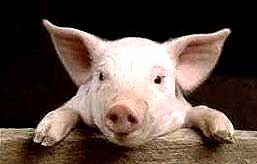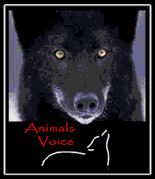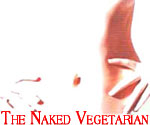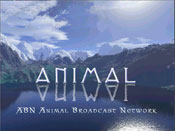Refuge for the hoofed and beaked
When most people imagine their local animal shelter, they picture a tail-wagging terrier or a calico kitten. But the Hudson Valley is home to a different type of animal rescue altogether: Catskill Animal Sanctuary. CAS is a 105-acre haven for abused horses and farm animals. Though these animals were once intimately familiar with the worst humanity has to offer, their lives now resemble a children’s bedtime story, wherein Rambo the ram nuzzles Jerry the duck, and a couple of potbellied pigs snuffle by. But this is for real, and has taken untold patience, energy, and no doubt love.
 Through care and training, the 150+ residents of CAS are now happy, well-adjusted ambassadors of their species. That last point is not unimportant, because CAS’s mission is not only to care for the kind of animals few in our society think about. The organization feels it’s equally important to educate visitors about American factory farming practices and the benefits of a meat-free diet, for the animals, the environment, and human health alike.
Through care and training, the 150+ residents of CAS are now happy, well-adjusted ambassadors of their species. That last point is not unimportant, because CAS’s mission is not only to care for the kind of animals few in our society think about. The organization feels it’s equally important to educate visitors about American factory farming practices and the benefits of a meat-free diet, for the animals, the environment, and human health alike.
To that end, CAS has a visitor’s center, school and organization programming, and farm tours open to the public every weekend in the spring, summer, and fall, and many travelers and weekenders make it a regular stop. “I never imagined I’d get kissed on the cheek by a cow, or fall in love with the personality of a goat, but now it happens to everyone I bring to CAS,” says Gus Meyer, a volunteer who comes up from Manhattan to spend time with the animals. Meyer explains that before he was introduced to the idea of a farm animal sanctuary, he didn’t think much about the connection between these creatures, every bit as loving and charming as the family dog, and what’s on his plate.
“We love to see how moved our visitors are,” says CAS Director Kathy Stevens, whose love of animals and background in education made her want to combine the two. “Animals who’ve never known kindness or security heal so very quickly here, and do a great job of dispelling the many myths about farm animals. Most people wouldn't believe that, for instance, a sheep could (or would) spend the night lying by a sick pig, or run to the parking lot to greet new guests. But that’s what our Rambo does." Stevens hopes that the Sanctuary is a place of profound self-discovery for humans, and credits some "pretty remarkable creatures" with encouraging visitors to examine their lifestyles and how our personal choices impact the animal kingdom.
In its short history—the organization was started by Stevens in 2001—CAS has already taken in over 1000 animals, via the State Humane Association, police, or individuals. The sanctuary’s first charge, a miniature horse named Dino, was the sole survivor of a Brooklyn stable arson back in 2000. Tiny Dino, who is currently over 130 in human years, kicked out his stall and was dragged to safety; he suffered permanent lung and eye damage, but shows no sign of slowing down.
Now that Catskill Animal Sanctuary is well-established, the calls come in regularly—the starving horses; thirteen abandoned goats; a rooster stuffed in a mailbox in the Bronx. CAS takes in as many as possible, keeping in mind a healthy staff ratio and the rising cost of feed and vet bills. “We help keep costs low by relying on wonderful volunteers to fill out our small staff,” says Stevens, “but unfortunately we still turn down animals every day.”
Space does arise when animals are adopted by community members who have gone through a rigorous application process. These adoptions are real success stories, and a tribute to the love and care the animals receive at CAS. Take for instance the story of an old horse named Chance, who arrived at the sanctuary severely psychologically damaged. Chance had been kept in a stall for nine years without once being let out. Her manure was packed six feet high and she was terrified of people. But with time, patience, and love, Chance began to drop her defenses. Still, Stevens assumed she’d be among the“lifers” –older special-needs animals who live out their days at CAS. But an especially skilled and compassionate volunteer fell in love with her—and took her home. “Imagine my surprise! We literally wept with joy,” said Stevens.
Stevens wishes farm animal sanctuaries were part of more communities, as accepted as the local SPCA. “The more people interact with farm animals and examine the connection between meat eating and environmental, ethical, and health crises in this country, the better off we’ll all be.”
by Gretchen Primack
Catskill Animal Sanctuary is located at 316 Old Stage Road in Saugerties, New York. For more information, go to www.casanctuary.org or call (845) 336-8447.
 Through care and training, the 150+ residents of CAS are now happy, well-adjusted ambassadors of their species. That last point is not unimportant, because CAS’s mission is not only to care for the kind of animals few in our society think about. The organization feels it’s equally important to educate visitors about American factory farming practices and the benefits of a meat-free diet, for the animals, the environment, and human health alike.
Through care and training, the 150+ residents of CAS are now happy, well-adjusted ambassadors of their species. That last point is not unimportant, because CAS’s mission is not only to care for the kind of animals few in our society think about. The organization feels it’s equally important to educate visitors about American factory farming practices and the benefits of a meat-free diet, for the animals, the environment, and human health alike. To that end, CAS has a visitor’s center, school and organization programming, and farm tours open to the public every weekend in the spring, summer, and fall, and many travelers and weekenders make it a regular stop. “I never imagined I’d get kissed on the cheek by a cow, or fall in love with the personality of a goat, but now it happens to everyone I bring to CAS,” says Gus Meyer, a volunteer who comes up from Manhattan to spend time with the animals. Meyer explains that before he was introduced to the idea of a farm animal sanctuary, he didn’t think much about the connection between these creatures, every bit as loving and charming as the family dog, and what’s on his plate.
“We love to see how moved our visitors are,” says CAS Director Kathy Stevens, whose love of animals and background in education made her want to combine the two. “Animals who’ve never known kindness or security heal so very quickly here, and do a great job of dispelling the many myths about farm animals. Most people wouldn't believe that, for instance, a sheep could (or would) spend the night lying by a sick pig, or run to the parking lot to greet new guests. But that’s what our Rambo does." Stevens hopes that the Sanctuary is a place of profound self-discovery for humans, and credits some "pretty remarkable creatures" with encouraging visitors to examine their lifestyles and how our personal choices impact the animal kingdom.
In its short history—the organization was started by Stevens in 2001—CAS has already taken in over 1000 animals, via the State Humane Association, police, or individuals. The sanctuary’s first charge, a miniature horse named Dino, was the sole survivor of a Brooklyn stable arson back in 2000. Tiny Dino, who is currently over 130 in human years, kicked out his stall and was dragged to safety; he suffered permanent lung and eye damage, but shows no sign of slowing down.
Now that Catskill Animal Sanctuary is well-established, the calls come in regularly—the starving horses; thirteen abandoned goats; a rooster stuffed in a mailbox in the Bronx. CAS takes in as many as possible, keeping in mind a healthy staff ratio and the rising cost of feed and vet bills. “We help keep costs low by relying on wonderful volunteers to fill out our small staff,” says Stevens, “but unfortunately we still turn down animals every day.”
Space does arise when animals are adopted by community members who have gone through a rigorous application process. These adoptions are real success stories, and a tribute to the love and care the animals receive at CAS. Take for instance the story of an old horse named Chance, who arrived at the sanctuary severely psychologically damaged. Chance had been kept in a stall for nine years without once being let out. Her manure was packed six feet high and she was terrified of people. But with time, patience, and love, Chance began to drop her defenses. Still, Stevens assumed she’d be among the“lifers” –older special-needs animals who live out their days at CAS. But an especially skilled and compassionate volunteer fell in love with her—and took her home. “Imagine my surprise! We literally wept with joy,” said Stevens.
Stevens wishes farm animal sanctuaries were part of more communities, as accepted as the local SPCA. “The more people interact with farm animals and examine the connection between meat eating and environmental, ethical, and health crises in this country, the better off we’ll all be.”
by Gretchen Primack
Catskill Animal Sanctuary is located at 316 Old Stage Road in Saugerties, New York. For more information, go to www.casanctuary.org or call (845) 336-8447.













0 Comments:
Post a Comment
<< Home